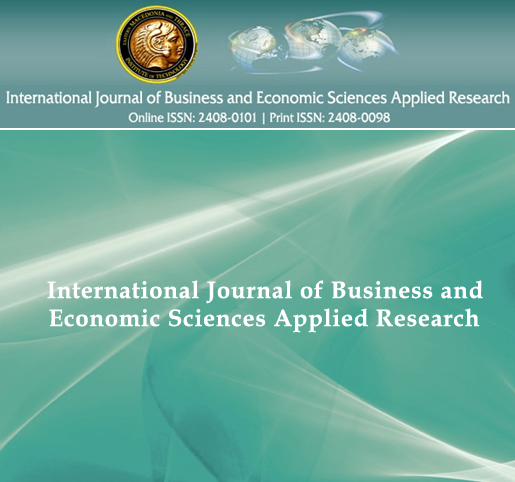Impact of value chain governance on the development of small scale shrimp farmers in Vietnam
Impact of value chain governance on the development of small scale shrimp farmers in Vietnam
Author(s): T. M. H. Ho, Philippe BurnySubject(s): Economy
Published by: Τεχνολογικό Εκπαιδευτικό Ίδρυμα Ανατολικής Μακεδονίας και Θράκης
Keywords: value chain governance; shrimp farmers;Vietnam
Summary/Abstract: Purpose of this paper is to identify the tendency of shrimp value chain development and impact of its governance on the small scale shrimp farmers in Vietnam. Design/methodology/approach - Data from the shrimp farmers surveys in Mekong delta, Vietnam from 2008-2010 with the update information in 2014 were taken to analyse by the value chain analysis method. Findings – Traditional governance type of the shrimp value chain in the early state (before 2004) showed the different levels of coordination of farmers with collectors, among collectors, and collectors with processing plants. In this type of governance, trust and linkages are inextricably linked. However, they are not strong. The processing plants determine shrimp prices and quality requirement in the market while many collectors do not seem to be highly responsible for the quality of their products. To avoid this limitation, with the governmental support policy to improve farmers’ income, the processing plants set up a direct buying from farmers under contracts. These contracts led to a new governance type with an expectation of improving farmers' position. However, this model was broken due to several reasons including un-controlled shrimp raw material from small scale and individual farmers. Consequently, processors now tend to establish their own raw material zone to comply shrimp quality assurance, and eject the existence of farmers. This will lead small scale farmers to very difficult problems in finding the market. Poverty and social problems of small scale farmers might appear. The result recommends a greater strengthening and tightening of the value chain. Re-organizing shrimp farmers into legal teams or groups that help farmers to re-participate in the game with others actor in the chain is crucial. Research limitations/implications - The research mainly follows inductive approach in which qualitative methods are dominant due to the difficulties of data collection for the quantitative analysis.
Journal: International Journal of Business and Economic Sciences Applied Research (IJBESAR)
- Issue Year: IX/2016
- Issue No: 2
- Page Range: 93-98
- Page Count: 6
- Language: English

